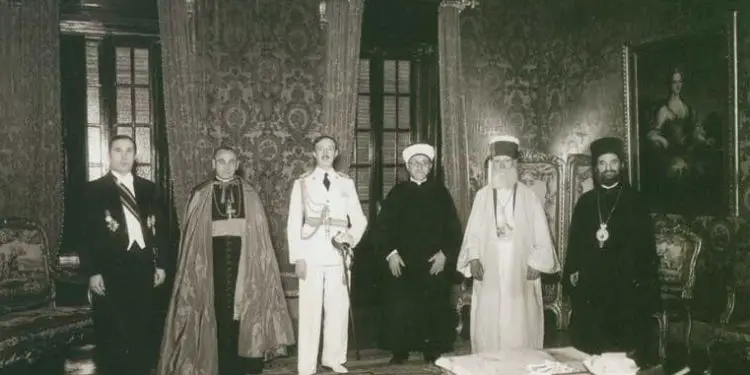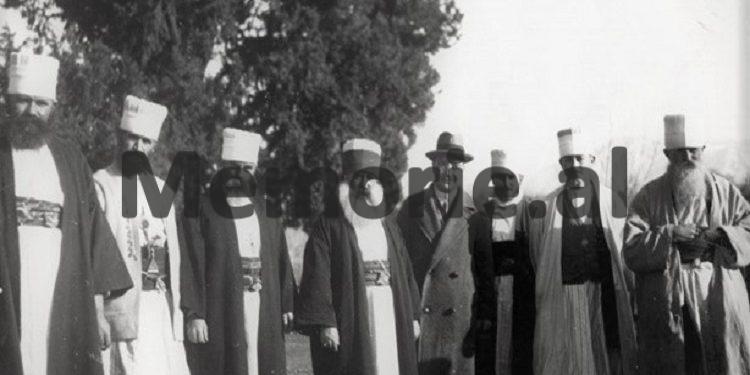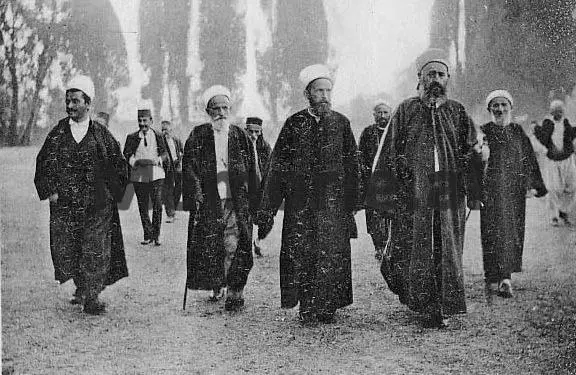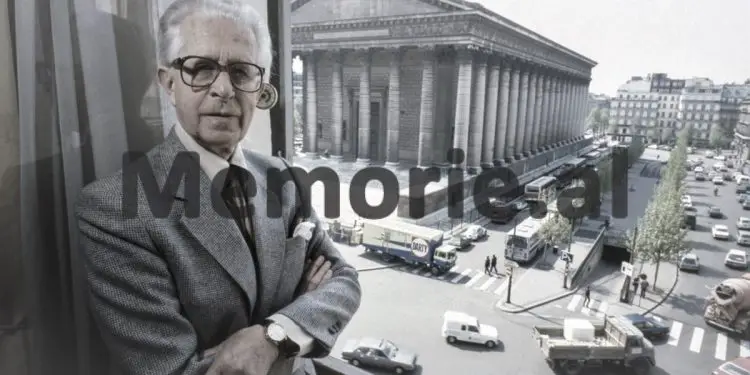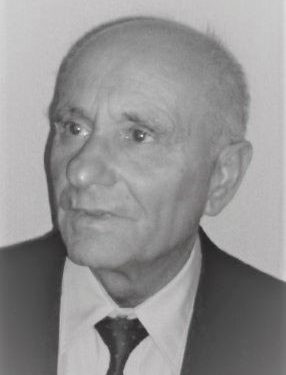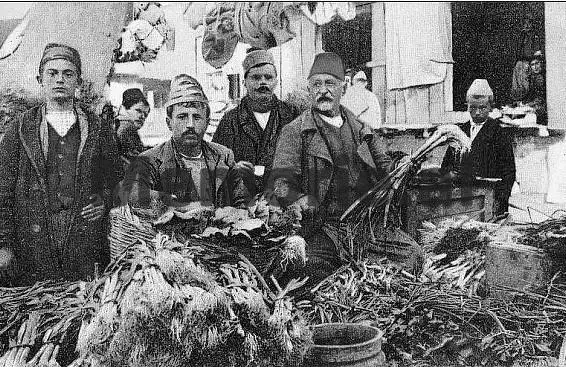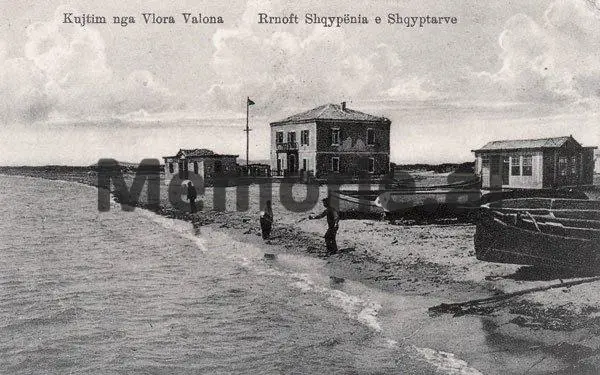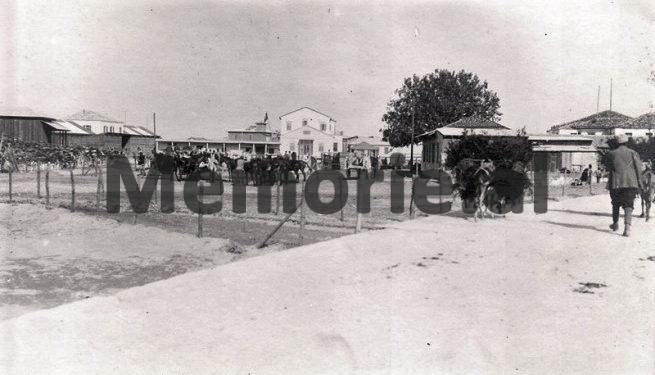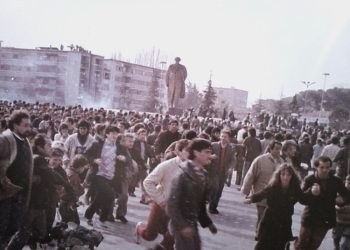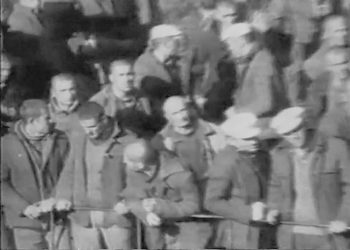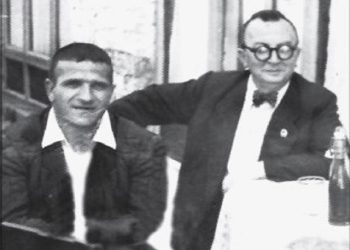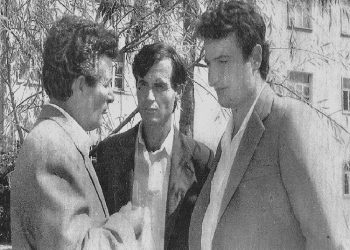By Sven Aurén
Translated by Adil N. Bicaku
Part fourteen
ORIENTI EUROPE
Land of Albania! Let me bend my eyes
On thee, thou rugged nurse of savage men.
Lord Byron.
In the book “Orient of Europe”, the author of the work is the Swede Sven Aurén. They are impressions of traveling from Albania from the ‘30s. His direct experiences without any retouching.
In a word, the translation of the book will bring to the Albanian reader, the original value of knowing that story that we have not known and we continue to know it, and now distorted by the interests of the moment.
Now a little about what these lines address to you: My name is Adil Bicaku. I have worked and lived for over 50 years in Sweden, without detaching for a moment, the thought and feeling from our Albania.
I am now retired and living with my wife and children, here in Stockholm. Having been for a long time, from the evolution of the Albanian language, which naturally happened during these decades, I am aware of the difficulties, not small, that I will face, to give the Albanian reader, the experiences of the original.
Therefore, I would be very grateful if we could find a practical way of cooperation together, to translate this book with multifaceted values.
Morally, I would feel very relieved, paying off part of the debt that all of us Albanians owe to our Albania, especially in these times that continue to be so turbulent.
With much respect
Adil Biçaku
Continued from the previous issue
The song rises and falls. Sometimes it goes on to scream and scream; sometimes it sits down, so much so that you hear the roar of bass tones. The dervishes in the semicircle sway back and forth like barley ears from the wind, and every time the name of Muhammad is mentioned, the eleven place their hands on their hearts and bow down deeply and gracefully over the dark floor.
Allah is great and Muhammad is his prophet!
They get hotter and hotter. The word song is no longer adequate. Now it’s just screaming, scary, penetrating screaming, that makes an impression, terribly animalistic. Suddenly they seem to get stuck in a word, a name, which is snatched with tact and certainty, as in the calls in the stadium:
-Hysein, Hysein, Hysein, Hysein…!
Sweat comes out of their foreheads. They are no longer on this earth. They are in the wonderful paradise, which only a dervish has the privilege to enjoy already in this life. The bodies tremble. One of the dervishes undergoes a convulsive oil explosion.
-Hysein, Hysein, Hysein…!
The old sheikh raises his hand, weak, dirty, with long, uncut nails and calmness falls immediately. The semicircle was tactfully lit with stone oil lamps. Soldiers at the top of the stairs feel the nearness of Allah and see with a squinting eye. One of the dervishes gets up and goes slowly to a closet. Hear how he searches between dishes and glassware. He comes with a vase and after Shehu’s order, he drinks what is inside. This is the secret drink of the Rufai, the water of magic (elixirs), which makes the dervishes, able to endure the most terrible pains, without changing the smiling face and not harming the body.
-What does that liquid (elixir) contain? I whisper to my companion, who seems very fascinated by this strange procession.
-Sherbet-, he whispers to me. Nothing but sorbet.
Now it will be proved how much the syrup (elixir) serves.
One of the dervishes, a young more man, with savage, fanatical looks, and with his chest inserted, sits in the middle of the half-circle. He takes a few sips of the syrup from the vase, undresses to the waist and, bending over, takes from Shehu’s hand, one of the small needles, which he rubs with a piece of greasy newspaper. The needle is approximately 3 decimeters long and somewhat thicker than a sock spear. It’s quite quiet in the room, and everyone has their eyes on the half-naked delinquent.
He does not seem to be bothered by any fear.
Without hesitation he passes the needle through the left cheek, keeps his mouth open, so that the iron shines in the mouth, and continues with the needle outside the right cheek. With the needle further across through the cheeks and mouth, he sits for a few minutes, and then pulls out that unpleasant instrument while blood drips from both sides of the face. But it is not a big stream of blood. The young dervish takes a few drops of saliva on the thumb and rubs the wounds and the blood stops at once. When I look at him, closer, to the face, I do not see any needle marks.
One of the soldiers has come out. He can no longer bear it.
-This is nothing, my companion tells me. But expect to see!
The semicircle intensely watches the actions of the young dervishes and sometimes murmurs the name of the prophet, while the sheikh’s fingers count the rosary with yellow beads. Suddenly, the old man swaps the rosary with something made of glass, and when I check it better, I find that it is a lamp glass, which he holds in his hand, ordinary lamp glass, old, obviously coming from the gas lamps of one of the rooms. . The glass of the lamp is given to him by another dervish, whom he receives with a reverent bow. The sheikh gives a sign with his weak hand.
A disgusting squeaky voice is heard, which seems disturbing in this gloomy room.
The dervish eats the glass.
I do not want to believe my eyes. I crawl closer, to see her better, but there is no doubt: the man is really eating the glass of the lamp. Calm and unperturbed he holds it in his right hand and bites it with his teeth, piece by piece, chews it carefully and follows it. I see the throat, how the pieces slide down. He eats the glass of the lamp as calmly as the inhabitants of Tirana, the mutton. And he does not stop before he chews it carefully and eats all the glass.
-Hysein, Hysein…!
The piercing scream begins again. The sheikh gets up and looks out the window and when I accompany his gaze, I find myself in front of a magical sight, which is in a strange contrast to these horrible scenes, in this room: against this night sky in dark blue, where a magnificent silhouette of a minaret is presented to me. At the top of the minaret hangs a white star. It is a view elevated above any time and place, a picture of boundless peace and unlimited comfort. But on this the old dervishes, it seems, the picture exerts a strange influence. He turns and makes an imperial gesture, a gesture which I do not understand, but its companion my companion translates its contents with these words:
-Careful! Now comes the main number! Now start with the knives. They pierce the stomach, far beyond through the whole body…!
-No, I answer, now it really is enough. I have seen quite a few of the Rufai. Now I’m going to leave.
When Shehu, pulling out of the holster, a triangular spear and the wild scream, echoes in the walls with new intensity, we walk blindly down the stairs and out into the street.
Oh, this air, this wonderful fresh night air!
I take a deep breath, before we start walking down towards the old mosque.
***
Here outside on this street in the quiet night, to see the experiences in the masjid of Rufaive, as a disgusting and unbelievable dream. The strong moonlight, paints trees and houses in a stunning color degree and outside the cement stand, moves the post-guard all the time, up and down. I do not see anyone; I do not hear any voice. Inside the beautiful iron railings in the courtyard of the mosque, lie some old cross and cross tombs, with cracked slabs and stones of remnants fallen to the ground. Through the hole of the shrine I see an oil lamp, which emits a dim light over the wooden coffin of Sulejman Pasha. Deep calm reigns, a peace that you seem to feel and smell. A faint voice reaches my ear, a voice, which is formed into one word: Hysein! But he has lost his strength along the way, from the house of the dervishes, to here; it is just a murmur, which I would not have noticed if I had not known its origin and meaning.
-So what do you think? Ask the young Albanian next to me. Should such a thing be allowed in any modern European country?
-Why not? I answered a little confused. Think what a tourist attraction!
But my guide did not approve. Even if the quality of Rufai as a tourist attraction, seems to fulfill a certain function, is this kind of religious exercise something, which contributes to keep the Albanian Muhammadans still, in ignorance and over faith, he thought. Of course he is right. I see those soldiers there standing in the open doorway, in front of me, with torn eyes, affected looks, and horrified facial expressions. There was nothing disgusting, or undesirable in that horror.
To be terrified, because holy men, through magical art, testify to their relationship with Allah and His Prophet. They were ready, to kneel and kiss the hands of the dervishes. This is the way the masses react during Rufai’s terrible sessions. If he were not, who could eat glass and stab himself in the abdomen, a holy man and an object of Allah’s goodness? Such a man, you should listen to, of course, also follow his advice. A dervish is faithful to God.
-How do you explain the mastery of dervishes, I asked. The one with the needles well, I’ve seen it before in different shapes, but the glass? And knives?
-It cannot be explained, says my guide. Our doctors remain completely incomprehensible or have not been able to give any explanation at all, no matter how unacceptable. Foreign scientists, who have seldom come here, remain equally speechless. But why does everything have to be explained? Suffice it to say, that all this is corrupt and should be removed.
He hands me a cigarette and his matchstick throws an illuminating circle over the potholes.
Why should everything be explained? Here, why should it? And I thought that exactly that answer and that attitude towards Rufaive mysticism, shows that this young Albanian was a pure oriental and this is really, quite strange as a few words of the mouth, can throw a sudden lightning, between orient and accident.
***
Later I asked a representative of the monastery, near Shkodra, how things are with Catholicism in the country.
-Excellent, this gentleman assured me. Catholics number around fifty percent.
A pop, on the southern border of Albania, made this statement:
Believe me, Greek Orthodoxy is gaining ground with each passing day. We are already at six ten percent and above, but the figure is growing non-stop.
In other words: the number of members of the Albanian faithful together would reach up to two hundred and ten percent of the country’s population. The regular situation is approximately 600,000 Muslims, 150,000 Catholics and 250,000 Orthodox.
But the real situation is also this, that all three of these religions are losing more and more influence. The new generation presents strong anti-religious tendencies and instead, they worship a kind of statism of the kind, which is in countries like Turkey and Germany. Especially important for these young people, who have been educated abroad and are considered as the new aristocracy of the country, is to be put in charge of anti-religious actions. They demand progress, effectiveness and immediately remove everything that has no place in a “modern” state. But in fact this intellectual youth poses a great danger to the progress of this progress, which they seek. Even some decades, when this youth has grown and strengthened in positions, quite unexpected conflicts can occur, between the old and the new. Perhaps the tensions become greater, which this new state can withstand.
When we visited the Tennis Club, the meeting center of the diplomatic circle and the high society of the country, there was no measure of pride. The children behind the simple zinc counters, constituted the embodiment of Western culture and progress. When he gave me a badly mixed “Gin Fizz” he held in his hand, it was a testament to Albania’s rapid future.
But even if Albania is on the path to a completely free religious life, to judge it according to the new generation, there should be no doubt about this, it does not mean the end of customs and morals. Emphasis of Dr. Rama, simply of the internal traditions of the country and the old traditions, contained in the moral doctrine, is quite right. The strongly developed sense of justice manifests itself in various forms. They find this in those laws, which are provided in the institution of hospitality. They find this, albeit in strange forms, blood feuds. But first of all they find it in honesty; this Albanian honesty is very adorable and very much mentioned.
I, never during my visit to Albania ever and in any form, have been provoked for payment fraud. The contrast between Italy and Albania in this regard, is of a triumphant art. Italy is the irritating place of petty fraud. In Albania, they have not yet thrown their pride into the sea and it is not even believed that they will do it. The more you know these people, the more you are convinced of this thought. They are all the same: coachman, waiter, clerk, soldier, and gendarme. Perhaps many times it is naivety honesty, but this feature contributes to equipping a special freshness. I could give countless examples for this statement, but two intermezzo are enough:
The first goes back to the years following the end of World War II and was told by the famous Lord Carnarvon. The Lord was really a great admirer of Albania and as a sign of this friendship he donated a small beautiful library, which is the pride of Tirana and the country. He made many Albanian trips by car and on one of these trips; he had a small suitcase tied to the car body. The connection had not been secure and when he arrived at the destination of the trip, he is forced to ascertain that the suitcase had fallen and was lost. The loss was soon forgotten, and the Lord continued to a town in southern Albania, where he stayed for a long time.
A few weeks later, an Albanian farmer was looking for him, who was pulling a donkey for a halter and had his suitcase tied in a saddle. The peasant’s reply, when he handed over the luggage to the lord, is more appropriate new say in the very words of Carnovarons:
-He thanked Allah that I stayed in this city and did not immediately continue my journey, because he would not reach home for the harvest, which his lady could not afford alone. This was his only point of view and he refused to receive any compensation.
The other intermezzo is only a year old. A large German tourist steamer anchored outside the coastal city of Vlora, to the indescribable surprise of the inhabitants, because it was the first time that such a large group of tourists honored their city with a visit. The passengers got off the ground quickly, it was a hot day, and they headed straight for the beautiful beach. The people in charge of the bath believed that fish began to fall from the sky and as they nurtured the idea that tourists are millionaires, they saw fit to raise the usual bath tax a bit. The tourists for their part seemed free anyway, paid off and returned to their steamer, which disappeared on the horizon.
But after that the consequences flowed. The tax increase was heard by the people, reported to the authorities and caused an unbelievable nervousness. Since it was not believed that the tourists would return again and demand blood feud for this insult, which they had caused them, the damaged honor should be repaired through an Albanian initiative. Authorities locked the bathroom officials in jail, calculated the amount owed by the establishment and sent the amount in question to the shipyard. The shipyard responded modestly but firmly, that the voyage was over and the passengers, in time, were dispersed to various places.
The authorities wrote to him again and announced that the Albanian state stands that without any conditions, the money in question should be given to the passengers according to the addresses they left at the construction site. And so it was. The construction workers were furious about this Albanian honesty, but each passenger got his fifty cents and of course they were just as surprised as the irritated construction site. But in Albania they took this futility very seriously and the state appointed a special inspector, with the sole task of going around the country and ordering that the taxes imposed not be exceeded. And here and there in the Albanian cities they showed me very seriously an official announcement, where the authorities, referring to the event in Vlora, emphasized that anyone who demands more from a foreigner than from an Albanian, offends “the honor of the homeland and the law of generosity”! /Memorie.al




